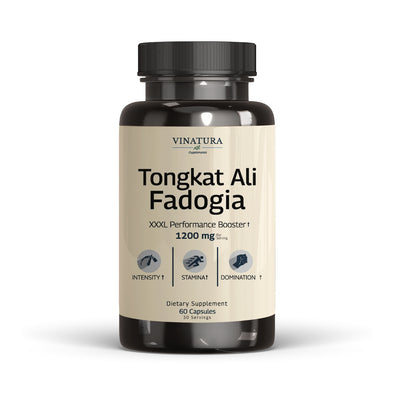
How Much HMB Is In Grapefruit? Why Do Bodybuilders Eat Grapefruit?
Grapefruit, a nutrient-rich fruit, has captivated the interest of health enthusiasts and athletes, particularly bodybuilders. One of its distinguishing features is the presence of Beta-hydroxy beta-methylbutyrate (HMB), a compound known for its role in muscle recovery and growth. Many have wondered, "How much HMB is in grapefruit?" as this knowledge can optimize dietary plans for bodybuilding and overall well-being. This article explores the abundance of HMB in grapefruit, its associated health benefits of HMB, and why it is a preferred choice among bodybuilders.
Before exploring further, please read the disclaimer located at the end of this webpage.
What Is Grapefruit?
Grapefruit is a citrus fruit popular due to its slightly sweet, tangy flavor and high nutrient content. The fruit is round and large, similar to an orange, and is characterized by its thick, greenish outer peel. Inside, grapefruit is divided into segments containing its edible flesh, which can range from pink to red to white, depending on the specific variety of the fruit.
An average grapefruit weighs approximately 260 grams and contains no fat.
This nutrient-rich profile and its refreshing taste have made grapefruit a popular choice among health-conscious individuals, including the 21% of U.S. households that regularly purchase the fruit [1]. Its popularity extends to the bodybuilding community and others with its health benefits.

How Much HMB Is In Grapefruit?
Although it is widely recognized that grapefruit contains HMB, the precise amount of this compound in the fruit has yet to be conclusively determined by scientific research.
Nonetheless, this fact encourages athletes, particularly bodybuilders, to include grapefruit in their diet.
While not quantified, the presence of HMB plays a significant role in maintaining and growing muscle, making grapefruit an appealing choice for individuals seeking to enhance their muscular strength.
Read more: What are the Differences Between HMB Calcium and Free Acid?
How Does HMB In Grapefruit Help With Health?
HMB in grapefruit contributes significantly to overall health and well-being, particularly in muscle development and recovery.
When consumed, HMB aids in increasing muscle mass and strength, making it an essential compound for individuals interested in bodybuilding or general fitness.
It also helps reduce muscle breakdown, which is vital for maintaining long-term muscle health and performance. HMB is crucial in alleviating inflammation and promoting muscle recovery after an injury.
This video explains in detail the benefits of HMB for muscle growth, muscle mass, and strength, giving you a thorough grasp of its mechanisms:
Besides muscle-related benefits, HMB offers potential positive effects on conditions like obesity and cardiovascular health. It can improve heart function and aid in weight management, contributing to a healthier lifestyle.
While the amount of HMB in grapefruit may not be quantified, these benefits linked to its consumption must be noticed.
Why Do Bodybuilders Eat Grapefruit?
Bodybuilders are particularly interested in grapefruit not just for its HMB content but also due to its low-calorie count and minimal fat content. Given its calorie count of just 108, grapefruit provides the body with essential nutrients without contributing significantly to daily calorie intake.
This makes it an ideal dietary choice for bodybuilders who aim to maximize muscle gain while minimizing fat accumulation.
While the exact amount of HMB in grapefruit remains undetermined, HMB's potential benefits for bodybuilding are well-recognized. HMB is known to enhance muscle growth and reduce muscle breakdown, contributing significantly to its bodybuilding advantages.
Bodybuilders often engage in high-intensity workouts, so HMB aids muscle recovery and adaptation to rigorous training regimes.
Finally, the fact that grapefruit is a natural, unprocessed food source makes it a preferred choice over synthetic supplements.
Therefore, despite the lack of precise data on the HMB content in grapefruit, its comprehensive health benefits make it a staple in the diet of many bodybuilders.
You may also like: ZMA vs HMB: Which Supplement Should Bodybuilders Choose?
Drug Interaction With Grapefruit
While grapefruit is highly beneficial for health and a favorite among bodybuilders, it's important to note that it may interact with certain medications.
This is primarily due to its ability to alter the concentration of CYF3A4 in the intestine, a feature it shares with drugs like itraconazole and erythromycin [1]. When combined with such medications, grapefruit can cause unwanted side effects.
However, it is generally safe and doesn't usually have adverse effects when consumed with other medications.
Nevertheless, whenever you are prescribed any medication, you should consult your doctor about your dietary habits, including your consumption of grapefruit, to ensure safety.
Other Sources of HMB
Grapefruit is a notable HMB source but can also be obtained from other foods.
Alfalfa is a significant plant-based source for vegetarians and vegans.
Avocados, known for their nutrient density, are another delicious way to incorporate HMB into meals.
Animal-derived foods like catfish are also rich in HMB, providing options for pescatarians and fish consumers.
Ensuring a well-rounded diet for various preferences and restrictions can be achieved by diversifying your sources of HMB. This approach not only enhances the quality of your nutrition but also promotes a balanced and inclusive dietary experience.

Conclusion
Grapefruit is a valuable addition to the diet, benefiting health-conscious individuals and bodybuilders. Many people wonder, "How much HMB is in grapefruit?" but while it may be challenging to quantify its HMB content, its role in muscle development, recovery, and overall health is significant. However, grapefruit may interact with certain medications, so it's important to consult doctors before increasing consumption. Other sources of HMB, like alfalfa, avocados, and catfish, offer alternatives to cater to different dietary preferences and enhance nutrition.
Read more:
- What Foods Are High In Leucine? 15 Natural HMB Sources
- 7 Best HMB and Vitamin D3 Supplements for Muscle Growth
- HMB And Vitamin D3 Benefits for Muscle Function And Fat Loss
References
- [1] Kane, G. C., & Lipsky, J. J. (2000). Drug–Grapefruit Juice Interactions. Mayo Clinic Proceedings, 75(9), 933–942. https://doi.org/10.4065/75.9.933
Author

Product Disclaimer
The dietary supplement products mentioned on this website are formulated based on scientific research and adhere to FDA guidelines for dietary supplements. However, the content of the articles has not been evaluated by the Food and Drug Administration (FDA) and is not intended to promote or endorse any specific product. Any products sold on this website are not intended to diagnose, treat, cure, or prevent any disease.
Opinions and Endorsements
Any claims, statements, or opinions expressed in the articles are those of the author(s) and do not necessarily reflect the views or opinions of the manufacturers of the dietary supplement products. The products sold on this website are separate from the content of the articles and are not directly endorsed or associated with the information presented here.
Liability Disclaimer
The author(s) of the articles, website, and manufacturers of the dietary supplement products do not assume any liability for any potential consequences arising from the use of the information provided in the articles. It is recommended that individuals consult with a qualified healthcare professional before making any dietary or lifestyle changes, including the use of dietary supplements.
Product Usage
Please refer to the product labels and packaging for specific usage instructions and guidelines for the dietary supplement products sold on this website.
Customer Support
For any concerns or questions regarding the dietary supplement products, please contact our customer support team, who will be more than happy to assist you.





Leave a Comment
Be the first to comment.
What do you think?